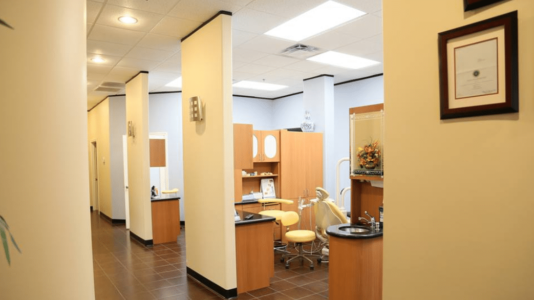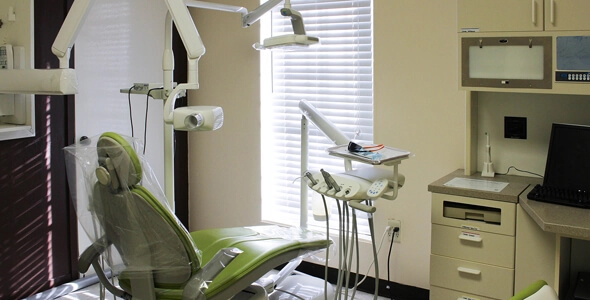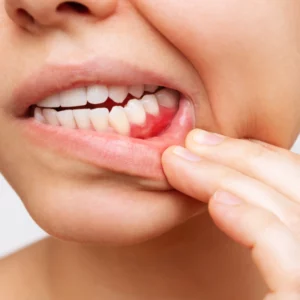Tooth extraction is fairly common- approximately 75% of adults in America have had a tooth removed at some point in their lives. There are many reasons why tooth extraction may be required from crowded teeth to tooth decay. At A Dental Care, this procedure is done in the office and you are given instructions for caring for the area as you heal.
During the appointment, the dentist injects an anesthetic into the area surrounding the tooth to keep the patient from feeling pain. Then, they will use a variety of instruments to loosen the tooth before removing it.
Once the tooth has been removed, gauze will be placed over the site to keep the bleeding under control and promote clotting. In this article, we’ll explain more about how to care for your teeth after having a tooth extracted.
Tooth Extraction Aftercare
There are several factors to consider when it comes to aftercare following tooth extraction, including how many teeth were removed because some teeth have longer roots and therefore will take longer to heal. However, as a general rule, pain should subside in about 3 days.
One of the most important parts of aftercare is ensuring that you maintain the blood clot that forms in the socket. Taking care of this blood clot is critical for healing and prevents complications, including dry socket.
Days 1 & 2
For the first couple of days following a tooth extraction, the primary focus is to allow the blood clot to form in the empty socket and general care for the mouth. According to experts, some bleeding is normal for up to 24 hours, but if you have active bleeding after this, you need to seek treatment.
Here are some additional tips for the first 2 days after a tooth extraction:
- Rest for at least 24 hours following extraction
- Change gauze as needed once the clot has formed
- Do not rinse, swish, or gargle while the clot is still forming- this may dislodge the clot and slow down healing time
- Avoid using straws, as it could cause the clot to dislodge
- Avoid spitting, as it could dislodge the clot
- Avoid sneezing or blowing your nose if possible- especially if the tooth was extracted from the upper jaw
- Avoid smoking as much as possible, as this creates the same pressure that using a straw does and could dislodge the clot
- Take pain relievers to reduce pain and inflammation
- Use cold compress for 10 to 20 minutes at a time to reduce pain
- Elevate head when sleeping
- Take medications recommended by the dentist, especially for complex extractions
Days 3 through 10
Once the clot has formed, it’s critical to keep it in place and follow oral hygiene tips to prevent further issues. Aftercare for days 3 through 10 includes the following:
- Use saline rinses to kill bacteria and prevent infection as the mouth heals
- Brush/floss as usual, but avoid the extraction site
- Eat soft foods that don’t require lots of chewing and won’t become trapped in the empty socket such as yogurt, soups, applesauce, and other similar foods
What if you have multiple teeth extracted?
In some cases, patients must have more than one tooth extracted at one time. At A Dental Care, if this is the case, we will recommend general anesthesia IV sedation instead of local. This means the patient will be unconscious during the extractions. The dentist will give you special instructions prior to the extractions, such as not eating after a certain time and making sure that you have someone with you that can drive you home following the procedure.
Aftercare for multiple extractions may be difficult, especially if they are located on opposite sides of your mouth. We will give you instructions for these cases and you may need a follow-up shortly after the extraction.
The dentist may use a clotting aid, which is a small piece of natural material to encourage clotting. Your body will break down and absorb this over time.
What about wisdom teeth aftercare?
Typically, wisdom teeth are extracted when patients are young and likely to recover quickly. That being said, you should expect the healing time to be longer than that for a regular tooth and you may need to take more time off from work or school.
Typically, wisdom tooth extraction involves extracting multiple teeth and patients are Treated with IV sedation. Typically, we use additional techniques to promote healing after wisdom tooth extraction, such as clotting aids or dissolvable stitches, PRF (platelet Rich Firbrin). Aftercare is similar to that of other teeth, but you may be given additional instructions based on your situation.
Considerations for Pediatric Tooth Extractions
The procedure for pediatric extractions is slightly different than that for adults. In most cases, children are put under general anesthesia,treated with oral sedation which means they will be unconscious and not feel anything during the surgery.
However, aftercare is similar- but it’s critical for parents/caregivers to monitor healing and oral health closely. Also, be sure to ask them about their symptoms including pain and bleeding.
Home Remedies for Pain
After tooth extraction, it’s not uncommon for patients to report pain and swelling and there are some home remedies that may ease the pain during healing, such as:
- NSAIDs (nonsteroidal anti-inflammatory drugs)
- Ice packs
- Saltwater rinses
When Should You See the Dentist?
At A Dental Care, we hope that your healing goes as expected, but if it does not, you should contact us as soon as possible. Typical healing after a tooth extraction can take up to 10 days. Of course, healing time does depend on several factors, including your age and whether or not you smoke.
Some signs that you need to see the dentist include:
- Worsening pain and swelling
- Worsening bleeding
- High fever
- Nausea
- Vomiting
- Severe pain spreading to your ear
- Foul tasting/smelling drainage from the extraction site
All of these indicate potential infection and must be addressed as soon as possible to preserve your overall health.
Conclusion
Tooth extraction removes a problem tooth and gets you back on your way to better health- but proper aftercare is critical to promote clotting and protect the socket as you heal. Most of the time, as long as there were no complications, healing should take no more than 10 days. If your symptoms worsen, it’s important to call the office and get an emergency appointment as soon as possible.











